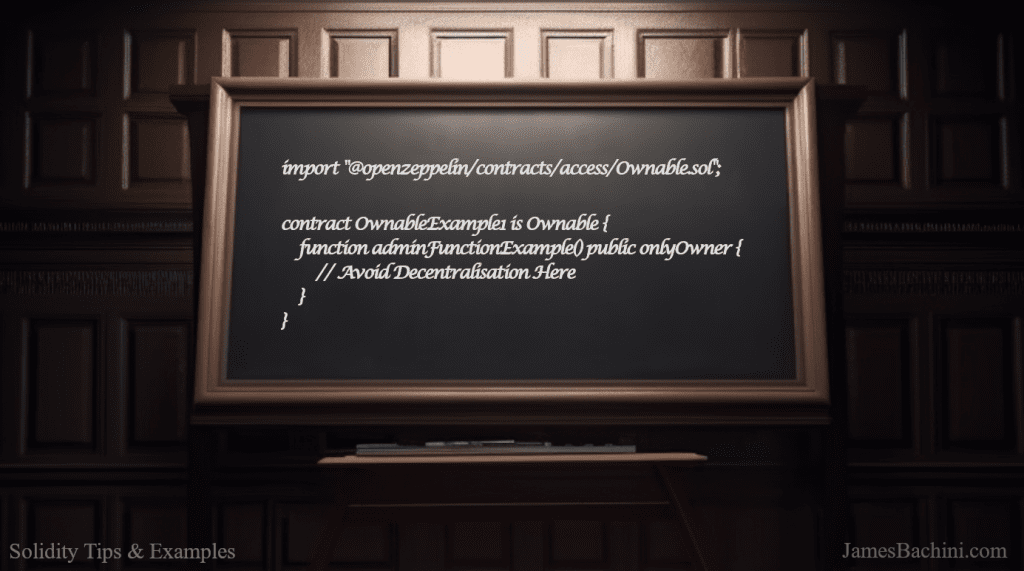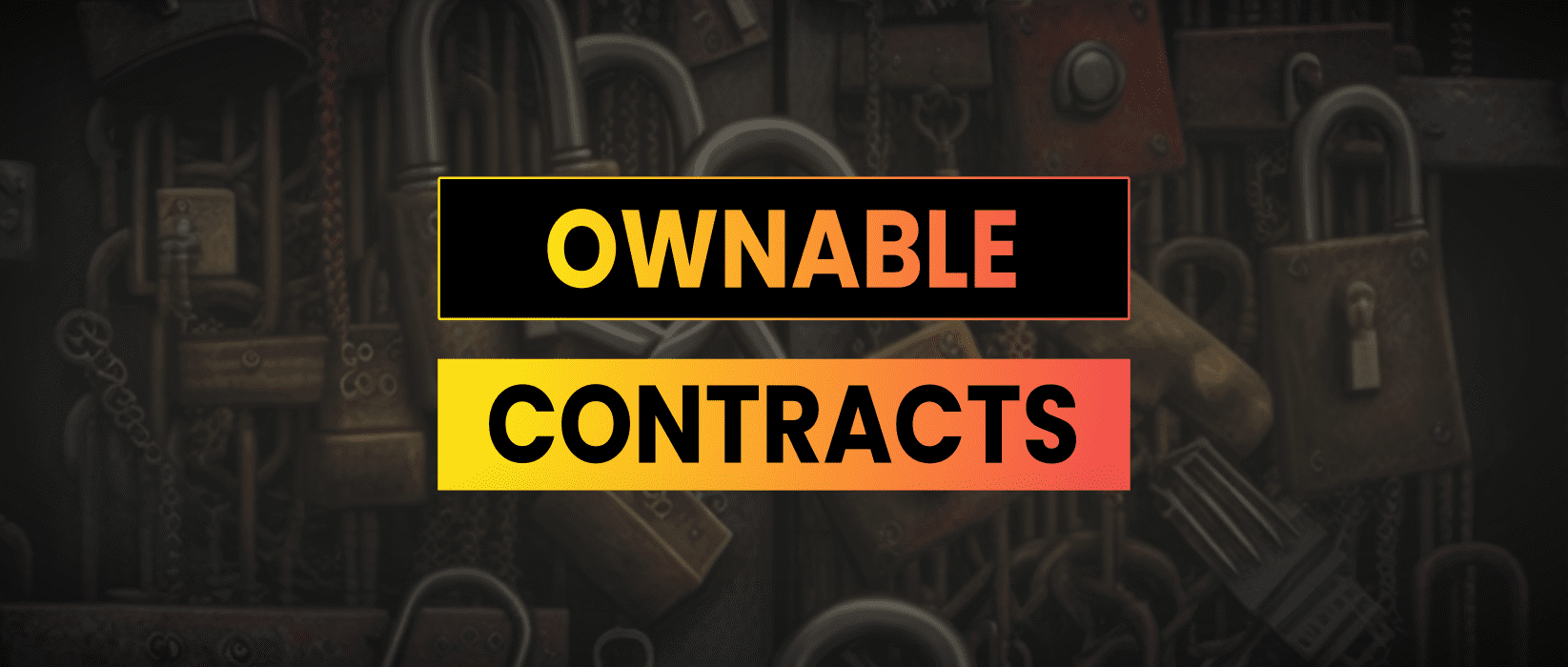Ownable contracts in Solidity are used to implement access control for certain functions.
The idea is that only the contract owner, who is typically the deployer of the contract, can execute these protected functions.
To do this we will first import the OpenZeppelin library
import "@openzeppelin/contracts//contracts/access/Ownable.sol";Inside our contract we can then add the onlyOwner modifier to the function that needs to be protected. The onlyOwner modifier checks that the address calling the function is the same as the contract owner’s address, and if not, it will revert the transaction.
function adminFunctionExample() public onlyOwner {
// Avoid Decentralization Here
}There is a full code example of ownable contracts using the OpenZeppelin library and a custom integration here: https://github.com/jamesbachini/Solidity-Snippets/blob/main/contracts/Ownable.sol
In many cases we need to protect certain functionalities within a smart contract. However I believe that this library is widely overused and detracts away from the ideals of decentralized development.
As blockchain developers we have the opportunity to write permissionless code and distribute it on a decentralized peer to peer network. By using onlyOwner functions we give away that power and negate the unique selling point of blockchain development.
Blockchains are slow and expensive and if we want a permissioned solution why not use a database and save yourself a whole bunch of headaches? There are certain examples where permissioned contracts make sense like trading bots or personal vaults but when creating applications for users we should strive for true decentralization.
It is much easier to create a permissioned ownable contract but wherever possible Solidity devs should strive to create immutable, permissionless code where all parties have equal access.



